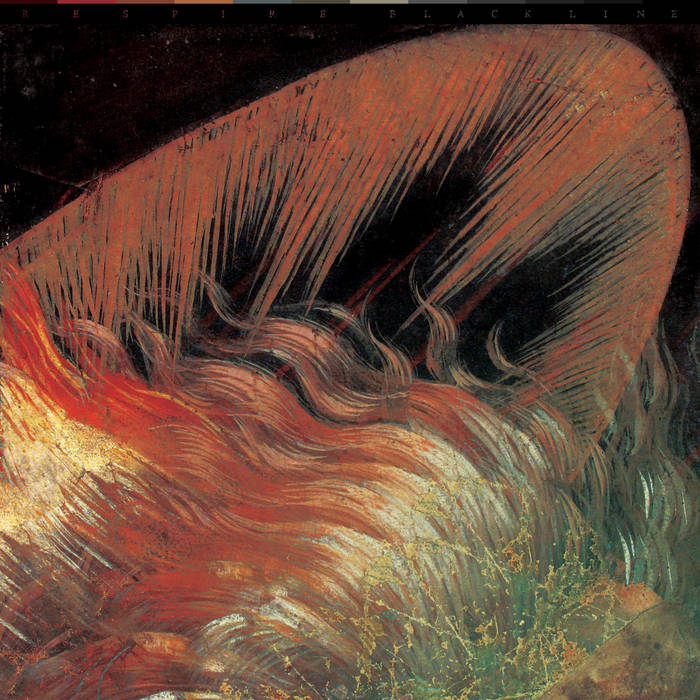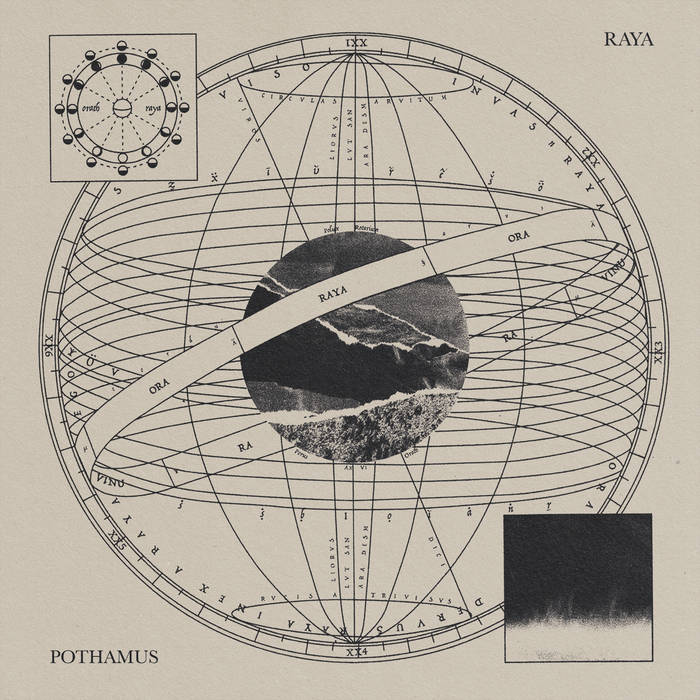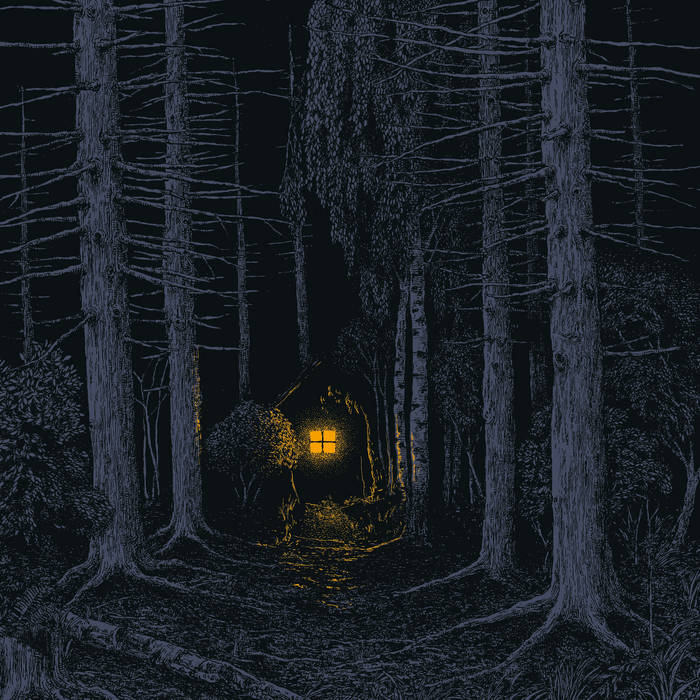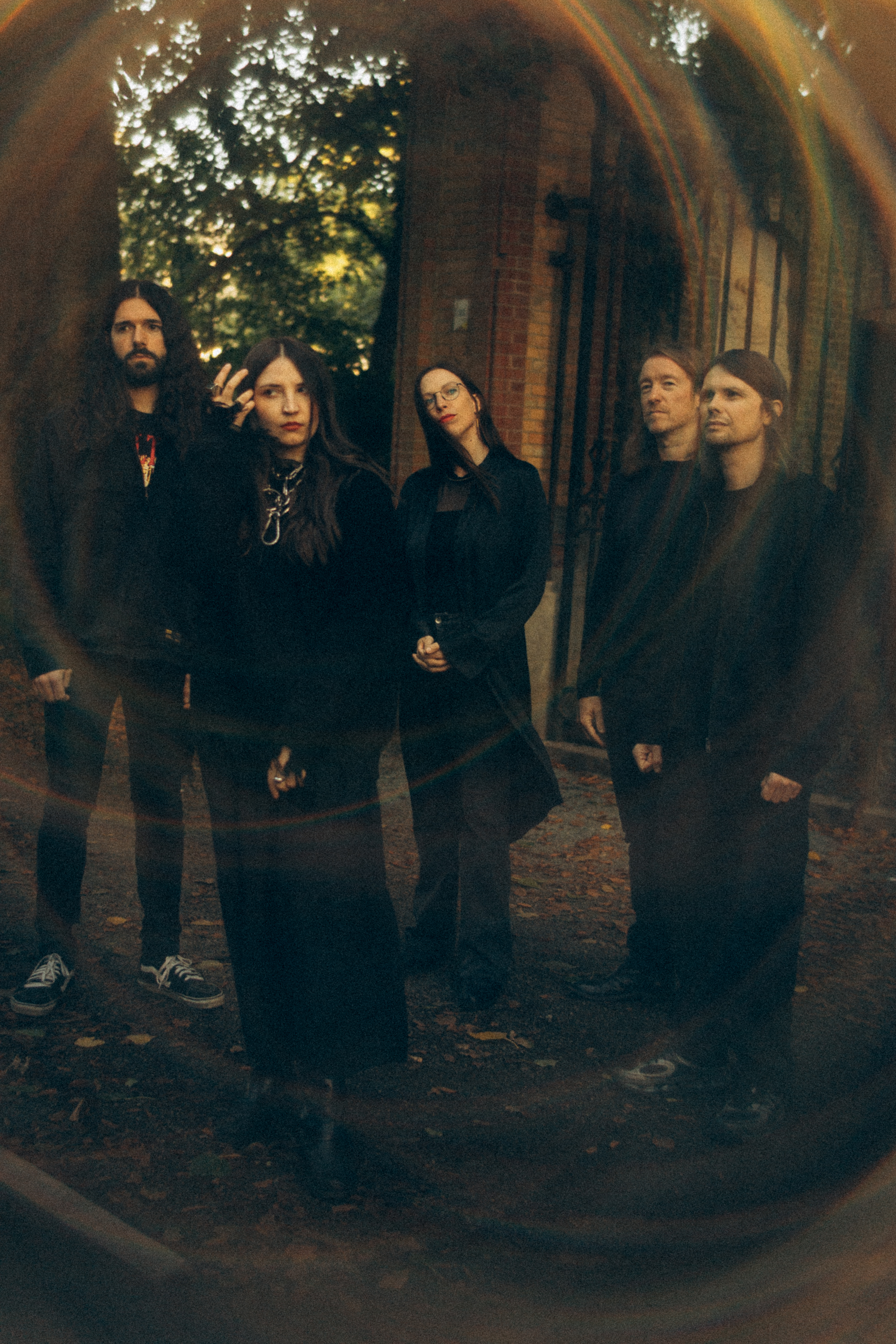That first moment. The sound. The perfect pause. The deep look at the cover. First love. Respire’s new album is here.
There are some crackling noises, the fire whose deep red lines you might see on the cover. Then, after seven seconds, the first four seconds of cello; that structure of pause and cello and then the next part expands on that structure. By then, all objectivity is thrown overboard and the author of these lines is uncontrollably in love with Black Line, Respire’s third full-length.
And then the intro “Blight” is over and “Tempest” is exactly that – a raging storm of hellish proportions. A bill showing where we are headed with us as a society and with this place: “we watch the world go up in flames / an uncaring race” - a motif that is repeated in the next track “Cicatrice”: “we’re all disease – destroy, destroyer”. Respire cannot hide their views on politics, society and social issues with “love as our only possible way out” as a clear idea and ideology. That shows in the structure of the band – an open collective which is open to unite people from different musical backgrounds and with different instruments. Those resemble crust-bands like Morrow or Anopheli who also feature a classical string instrument in their line-up. But Respire’s assembly of non-rock instruments doesn’t stop there – no it looks more like that of fellow-Canadians Godspeed You! Black Emperor with its Glockenspiel, vibraphone and with guest spots by trumpets and saxophones.
All of that is also reflected in their attitude towards wide, opening moments that enable band and audience to catch breath. Take “Tempest” as an example: The song rages for a bit more than 70 seconds and then stops abruptly (we will come back to that later) and then only the horns and a but guitar picking can be heard for a moment before the drums set in again and the strings come to the front. It is the proverbial calm in the middle of the storm. The audience cannot forget that this is just a moment of calm (before “Cicatrice” rolls over us) because the dual singing parts, seemingly not just delivered by two voices but many more, remind us of that clearly.
Apart from drummer Travis all band members add their voices to a multi-headed beast that sings in different intonations, different levels of volume, different spaces within the soundscape (some way back, some at the very front). The band knows each other’s strengths and are able to highlight all of it. They do so in amicable fashion, their timing is so precise it’s scary. The way the band is able to stop mid-riff and mid-beat is mesmerizing. It becomes clear that the band is so well in-tune with each other that their songs do not sound constructed at all, even though they surely are, because they must be as so many things are happening, it’s almost like a call-and-response opera. Of course this is a reflection of their hardcore roots and their approach to music and the fact that they shared the stage, the studio and the rehearsal room hundreds by now.
It is hard to find parallels to other artists because they are open-minded to the max and that in a very positive way. They are as much Pijn as they are Demersal, as much Anopheli as they are Fall of Efrafa. They are punkers and post-rockers. They are crusty and celestial. In many ways pretty unique and thus highly enjoyable.
Furthermore, one should notice the way they try to construct a kind of tension between records as Black Line features the final song “Catacombs Part II” which functions as a sequel to their last full-length “Denouement” which featured “Catacombs” in which the narrator is talking to someone (presumably his partner) about his oncoming “end” and the fact that he never wanted anyone to suffer from his addiction, he never wanted anyone to feel consequences from it.“Catacombs Part II” now shows the other side of the relationship with the addict’s partner saying that he can’t live without the deceased but that he has to and will: “all the light shines on for you / all the light shines on with you / all we hold like dust fades fast / (but love shines on in us)” - it will be hard and seemingly impossible but the love in himself will not go out for the deceased.
Love. Again. Well, there is nothing but love here for the Canadian collective. And if you listen to the opening Black Line you might fall in love as well. Very quickly. Love at first tune.








